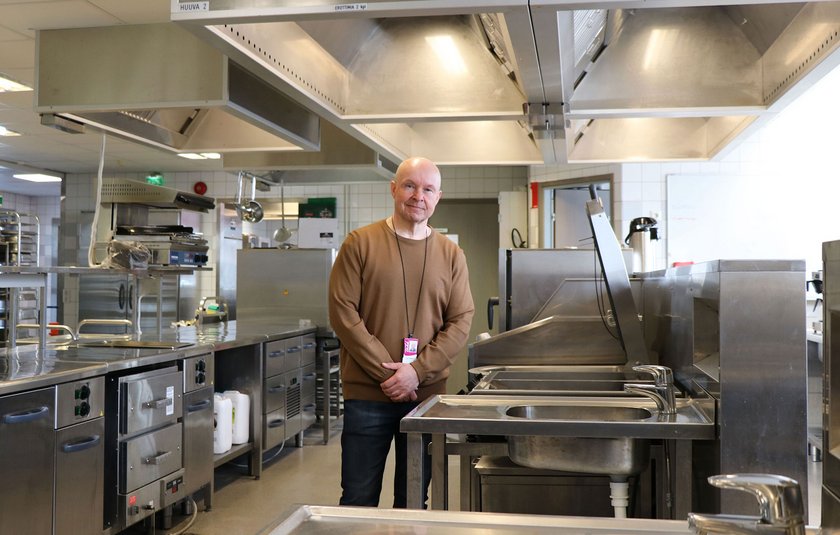Tourism and catering education in English is starting at Tampere Adult Education Centre, TAKK, in the autumn. The Ministry of Education and Culture granted TAKK an authorisation to provide education in English in two qualifications. They are
- Further Vocational Education in Restaurant Customer Service
- Further Vocational Qualification in Food Services.
The students who complete these studies will get the qualification of a cook, waiter, or bartender.
Tapio Määttänen, Education Coordinator at TAKK, says that the need for tourism and catering education in English is significant in Tampere region.
– There is a great demand for labour force in the restaurant field. To ensure smooth service, this field needs immigrants now and in the future. This makes the transition to English faster, Määttänen says.
– In Helsinki, English has been the main language in restaurants for years already, both in the dining areas and in the kitchens. The role of English as a work language has increased, and will increase, also in the Tampere region. English will be more widely used in food restaurants, fast food restaurants, and later also in the surrounding services, such as cleaning and security services.
Määttänen sees Tampere and its growing restaurant culture as a very attractive alternative to work force coming from abroad.
Pikante is getting ready for internationalisation by personnel training
Liisa Siuvo, the executive director of Pikante - Pirkanmaan Kansanterveys ry, which provides lunch, meeting and lobby services, says that both the customers and the personnel are increasingly multicultural in all of Pikante’s operating environments.
– It is obvious that the existing labour shortage cannot be solved with the Finnish work force only. We need labour from abroad, and that is why we also need a common language that everyone knows well enough to manage, Siuvo says.
Pikante is getting ready for the internationalisation of the field by arranging training for supervisors in cooperation with TAKK. The training focuses on working in international and diverse work communities.
– This change is not only about the English language, but about a larger whole. We are preparing for more diversity in the workplace. In future work communities, there will be employees of different ages, with different cultural backgrounds, and with different capabilities.
In the near future, Pikante will have to translate e.g. their orientation material, recipes, and work instructions into English. The English skills of the whole personnel must also be prepped.
Siuvo sees that even though the change into English will employ restaurants, the result will enrich both work life and working communities.
– The employees bring nuances from their backgrounds with them. For example, our employees participate largely in the recipe planning, so different cultures will be visible in our lunch menus, for instance.
First English education starting in autumn
The first English cook, waiter/waitress, and bartender qualification trainings are starting in the autumn. The application for these opens in June, and the start date is 18 September. The trainings are targeted especially at non-native people living in Finland and having sufficient English skills for work.
– Some Finnish skills will be taught, too, with an emphasis on professional vocabulary, Tapio Määttänen says.
Initially, the training will be implemented as self-motivated education, but later on, they will also be organised as labour policy education.
Apply
- Further Vocational Education in Restaurant Customer Service
- Further Vocational Qualification in Food Services
